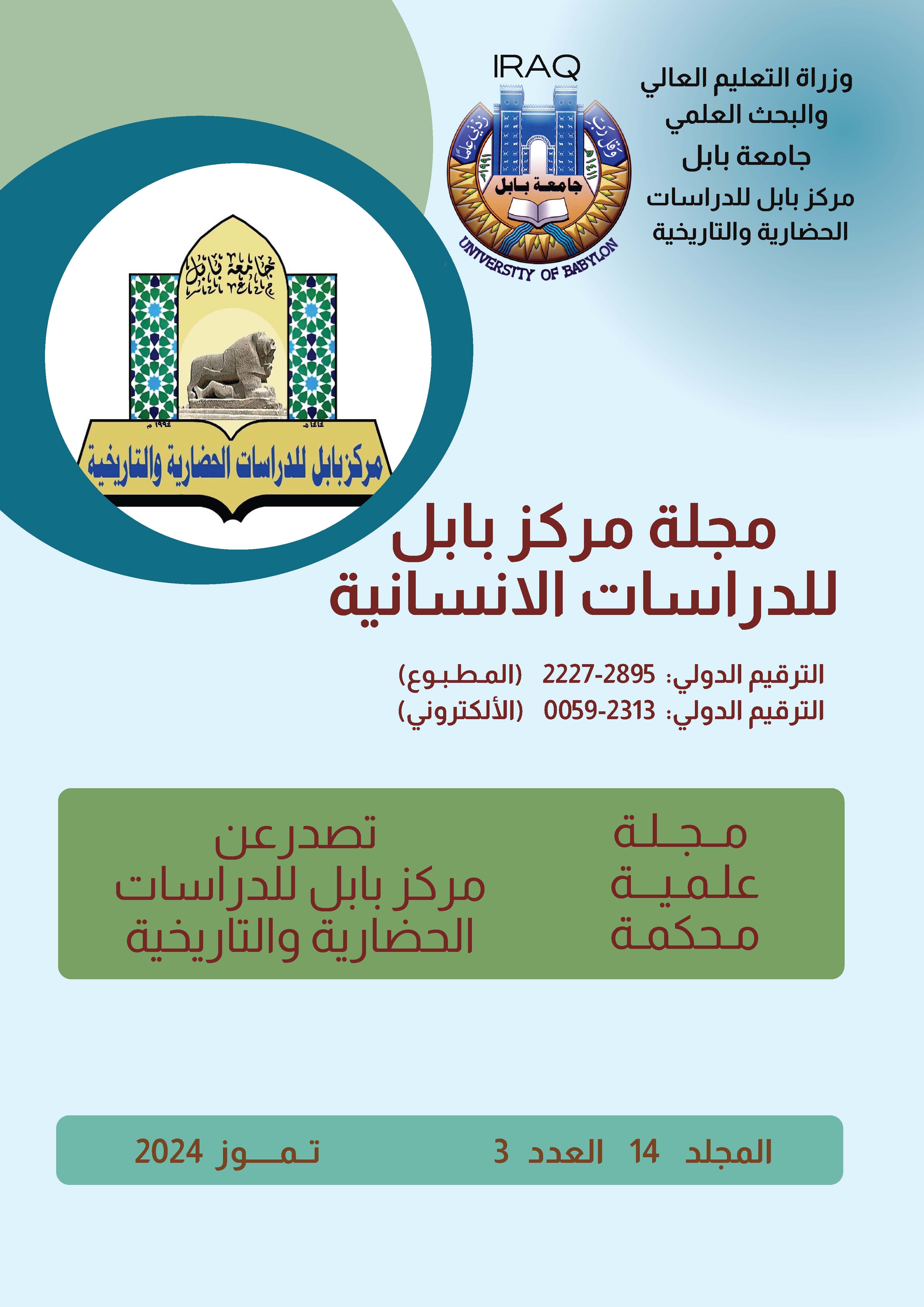Linguistic paradox in the poetry of the writer Kamal al-Din – selections from his poems – Structural study
Keywords:
paradox, linguistic paradox, writer Kamal al-Din, poetryAbstract
Irony is one of the symbolic tools with a distinctive style based on intelligence and linguistic skill. It has captured the attention of scholars, ancient and modern, because of its gentle nature that transforms the dry meaning into a meaning with flexibility and delicacy. It is a skill used by the writer in order to soften the meanings and hide the other side of the meaning that may be… It has a black or sad meaning, and Arabic poetry is the most beautiful of the arts that combine its lines. We find irony in all its types and patterns adorning the pages of Arabic poetry, ancient or modern. Perhaps this is due to the intelligence, skill, and ability of the Arab poet in adapting the language and making it easy, flexible, and how to turn it around. He wants in his poetic pages, and the modern Arab poet did not neglect the art of irony, but rather he was very present between his poetic lines, trying to benefit from them and their patterns in order to create his own poetic world and lower the curtain around the tragedies he suffers from and make them of a gentle and gentle nature that hides behind it a lot of pain and suffering. Perhaps the poet Adeeb Kamal al-Din is one of Iraq’s poets in the modern era, who suffered from estrangement and distance from his beloved country, which gave him a large poetic repertoire that made his linguistic river an inexhaustible source. He benefited from the art of irony in order to hide the aspects of sadness, estrangement, and distance from his beloved country, trying to Explaining what he suffers through his poems, mocking the irony of time with his poetic paradoxes He used linguistic irony in its three types, which are apparent contradiction, synthetic reproduction, and irony based on deletion, as he took advantage of them in his poems in order to add an aesthetic feature to them.







